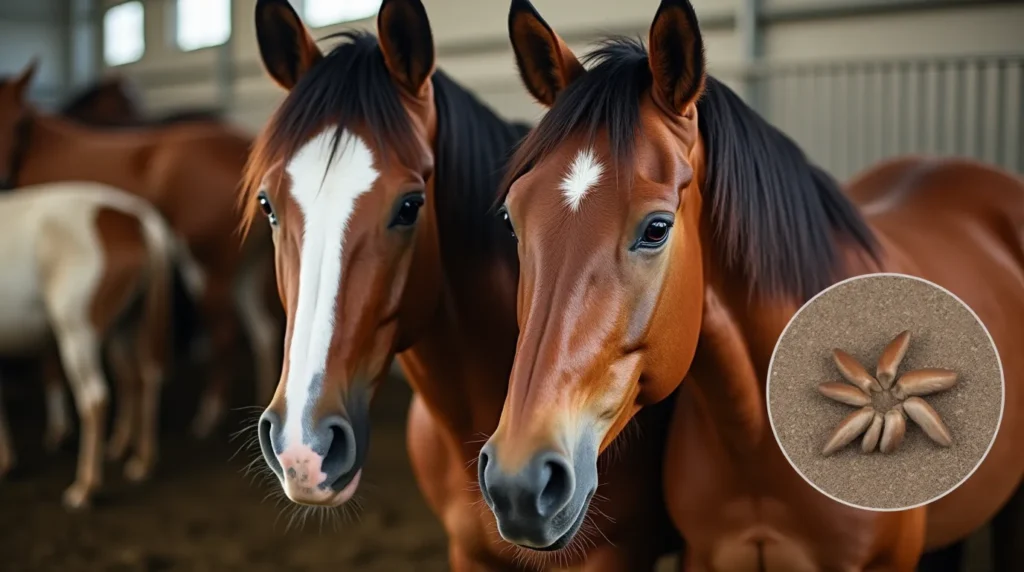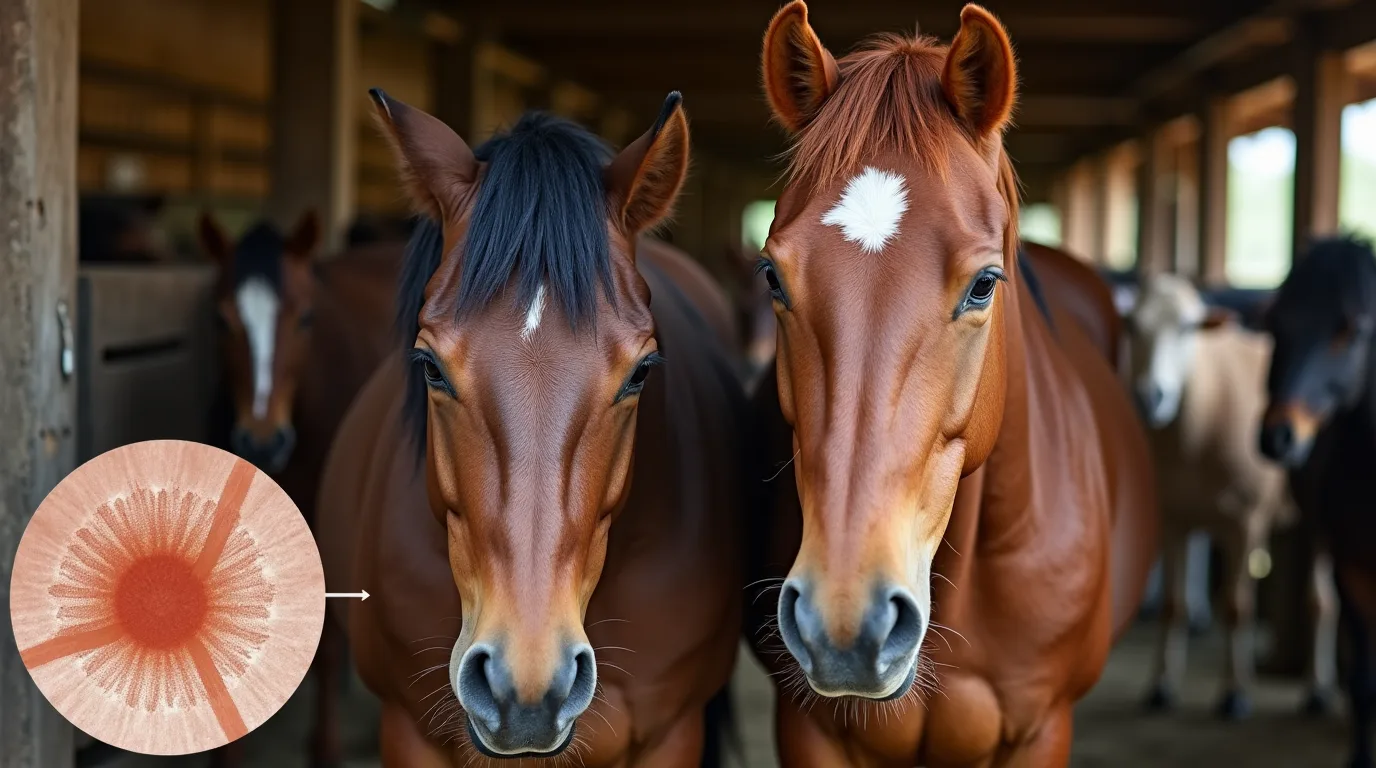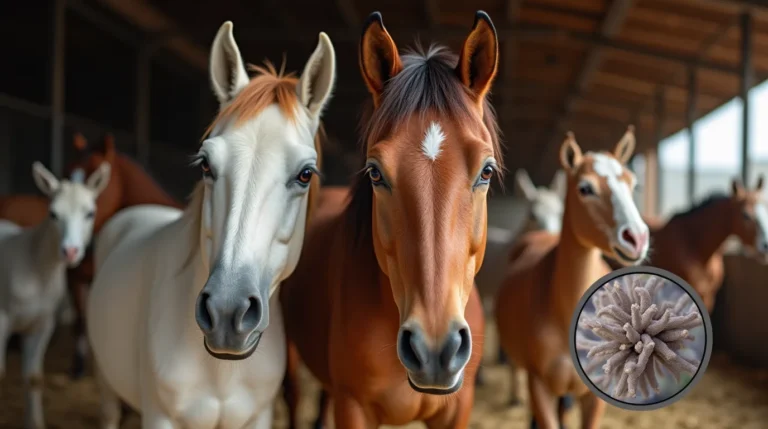Protect your horse’s health: Discover comprehensive insights into Intestinal Worms in Horses , including effective treatment options, prevention strategies, and expert veterinary recommendations.

Table of Contents
Intestinal worms in horses pose a significant threat to horse health, potentially causing serious complications if left untreated. As a responsible horse owner or caretaker, understanding the intricacies of equine parasitic infections is crucial for maintaining your horse’s optimal health and performance. This comprehensive guide will explore the most effective treatment options and prevention strategies for intestinal worms in horses, providing you with actionable insights to safeguard your equine companion’s well-being.
Understanding Intestinal Worms in Horses
What Are Intestinal Worms?
Intestinal worms are parasitic organisms that inhabit the digestive tract of horses, compromising their nutritional absorption, immune function, and overall health. These parasites can include:
- Strongyles (Large and Small)
- Roundworms (Ascarids)
- Tapeworms
- Pinworms
- Lungworms
- Bot flies
Impact on Horse Health
Untreated intestinal worm infections can lead to:
- Weight loss
- Poor coat condition
- Reduced performance
- Colic
- Intestinal damage
- Compromised immune system
6 Comprehensive Treatment Options for Intestinal Worms
1. Targeted Deworming Medications
Types of Dewormers
| Dewormer Class | Active Ingredient | Target Parasites | Frequency |
| Benzimidazoles | Fenbendazole | Strongyles, Roundworms | Every 8-12 weeks |
| Macrocyclic Lactones | Ivermectin | Broad-spectrum | Every 6-8 weeks |
| Pyrimidines | Pyrantel | Strongyles, Roundworms | As needed |
Veterinary Consultation
Always consult with a veterinarian to develop a personalized deworming strategy tailored to your horse’s specific needs and local parasite prevalence.
2. Fecal Egg Count (FEC) Testing
Implement regular fecal egg count testing to:
- Determine actual parasite load
- Identify horses requiring immediate treatment
- Monitor deworming effectiveness
- Prevent unnecessary medication
3. Pasture Management Strategies
Effective Parasite Control Techniques
- Rotate grazing areas
- Remove manure regularly
- Avoid overgrazing
- Maintain pasture cleanliness
- Use alternative livestock grazing to break parasite cycles
4. Nutritional Support and Immune Boosting
Recommended Nutritional Interventions
- Provide high-quality, balanced diet
- Supplement with vitamin and mineral-rich feeds
- Ensure adequate protein intake
- Support gut health with probiotics
5. Natural Deworming Supplements
Herbal and Holistic Approaches
- Garlic
- Diatomaceous earth
- Pumpkin seeds
- Wormwood
- Black walnut extract
6. Strategic Quarantine and New Horse Introduction
Biosecurity Protocols
- Quarantine new horses for 2-4 weeks
- Conduct thorough veterinary examinations
- Perform initial deworming and fecal testing
- Prevent cross-contamination
Recommended Pet Products on Amazon
- Farnam Equimax Horse Wormer
- Bimeda Equimax Wormer Paste
- Durvet Ivermectin Paste
- Safeguard Dewormer for Horses
Intestinal Worms in Horses (FAQ)
How often should I deworm my horse?
Deworming frequency depends on individual horse factors, local parasite prevalence, and veterinary recommendations. Generally, 2-4 times annually with strategic fecal testing.
Can intestinal worms be prevented entirely?
While complete prevention is challenging, implementing comprehensive management strategies significantly reduces infection risks.
Are natural dewormers as effective as chemical treatments?
Natural alternatives can complement traditional treatments but should not entirely replace veterinary-recommended deworming protocols.
What are the early signs of worm infestation?
- Weight loss
- Dull coat
- Pot-bellied appearance
- Decreased performance
- Visible worms in manure
Conclusion
Protecting your horse from intestinal worms in horses requires ,a multifaceted approach combining medical intervention, strategic management, and proactive monitoring. By implementing these comprehensive treatment and prevention strategies, you can safeguard your horse’s health and ensure their long-term well-being.
Call to Action: Share your experiences with horse parasite management in the comments below! Explore more expert pet care tips at BlitePet





